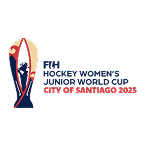
In the lead up to the International Women’s Day 2024, a year that marks 100 years of the International Hockey Federation (FIH), we are speaking with women in hockey, who have made major contributions towards the growth of the sport over the past few decades.
In today’s story, we feature Alyson Annan, one of the all-time great hockey players, with a resumé that sparkles with individual awards such as two times FIH Player of the Year, Order of Australia Medal winner, Sport Australia Hall of Fame inductee, along with phenomenal team success, winning 2 Olympic Gold medals and 2 FIH Hockey World Cup titles as a player, to go with a 2 Olympic medals (1 gold, 1 silver) and a World Cup title as a head coach!
Alyson’s first introduction to sport came through football instead of hockey, as she first started playing the sport with her brother and his team. When she was 12, there were no opportunities for girls to play football in school, so Alyson and her brother found a sport that they could play together, and that was hockey. Being dependant on one car prompted her to pick up the sport and over the next few decades, she has had no reason to look back.
Speaking of role models, Alyson mentions Ken Wark as one of the players she first saw on TV that she really admired. Although she didn’t watch much hockey growing up, when she started watching senior hockey as a player, Wark with his strength and aggression as a full back, left a strong impression on Alyson. In women’s hockey, Kim Small and Loretta Dorman, who were senior members of the Australian team when Alyson started playing with them as a 14-year-old, became her idols as she observed their unique playing styles from close quarters.
For Alyson her introduction to hockey was on grass and not artificial turf and the first time she played on the artificial turf was in 1990, when she was already on the verge of breaking into the senior team. The change from grass to turf made a significant impact on the game and changed the skills players had to master, which Alyson points to as a significant change she watched unfold in front of her own eyes. “The self-pass rules and removal of offsides are two rule changes that have made hockey very fast and I wish I could have played with those rules in my era. There were plenty of other rules changes that were attempted in my playing days that did not work, like the own goal rule, and were changed back, but these are the two that really have added value to hockey.”
In women’s hockey, Alyson believes there can be various steps taken to improve certain aspects, especially when it comes to coaching. “I feel we definitely need to see more female representation when it comes to coaching panels and coaching advisory bodies. Especially younger coaches, who are gaining more and more experience need to be given the platform to talk about their ideas and impart new learnings to those seeking knowledge on coaching hockey. That is how we will grow the game.”
On a personal note, Alyson attributes sports to giving her life a direction and a goal to work towards. At a young age, when Alyson first watched Carl Lewis win four gold medals at the Olympics in 100m, 200m, 4x100m and long jump, she knew that is who she wanted to emulate in her own life. “Sports gave me that path in life. Without sports I wouldn’t be where I am today, at all. Especially team sports, they teach you to work together, win and lose together, all of which are important life lessons. I was very lucky to have the right people around me at all the right moments of my life who have brought me to where I am and I am thankful to sports and hockey for that. It is one of the things I want to achieve as a coach, to give back to the sport what I got from it.”
Asked about what advice she would give to the next generation of aspiring hockey players, Alyson spoke about the fear of failure, saying, “In sports and in general life, we often treat failure as an end point. Failure is a part of the path, not the end. If you are passionate about what you do, as a player or as a coach, embrace failure as a new way of learning things and a new way of doing things. As a coach it is absolutely okay to make a mistake and to not have an answer to a problem instantly. It is a process and if you treat that failure and lack of answers as part of the process, you will be able to look beyond it and learn from it.”

























